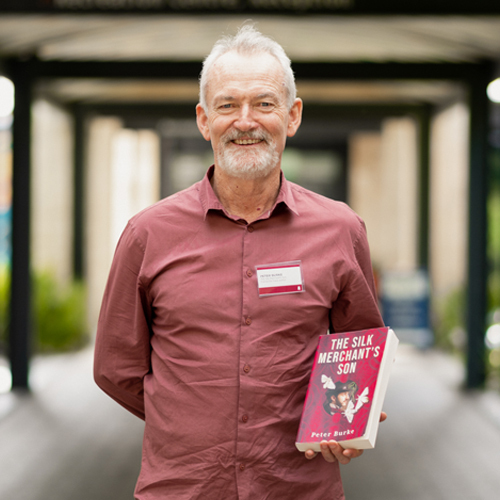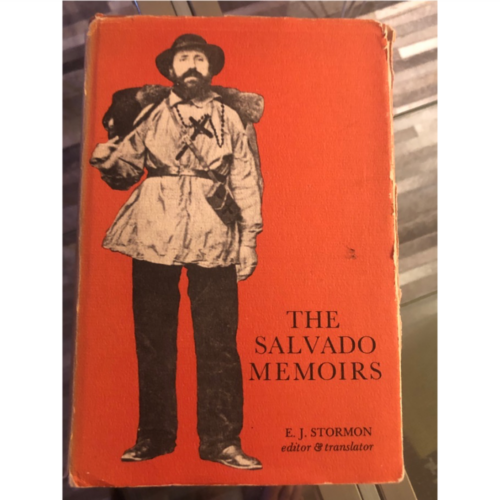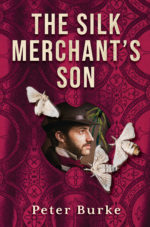Twixt hagiography and iconoclasm: Peter Burke gets to grips with historical fiction writing

In Peter Burke’s historical novel, The Silk Merchant’s Son, it’s 1845 and linguistics professor Fabrice Cleriquot is despatched from Lyon to the Swan River Colony in the company of twenty-eight mismatched and misguided Catholic missionaries.
In this blog post Peter grapples with how to portray the real people who came before us.
Good and bad.
It’s 2023, and we are mostly in agreement. English colonialism was bad. Catholic proselytising of native populations was also bad. That both enterprises caused irreparable harm cannot be denied.
We make these judgements in the abstract. Colonialism. But what of the humans? How do we judge the colonists? Their own words can confuse the issue by sounding too socially enlightened. Here is Samuel Burges in 1879 on how best to celebrate the fiftieth anniversary of the Swan River colony:
I hope to see the aboriginal people feted and cared for in a manner becoming us – not only as colonists but as Christians – for these peoples, it should be remembered, had their country taken from them when we settled here.
What of the missionaries?
It’s 1846 and you are Bishop John Brady newly arrived in Perth. Two million of your Irish countrymen are in the process of dying or fleeing. You know only too well the harms that will be done to indigenous language and culture. That poverty and land confiscation can be used as weapons. You may see your role as protective of the aboriginal people from the harms of English colonialism. If you knew folk in 2023 would group you with the English colonists, you may want to travel through time and give them some firm advice.
Arriving with Brady were twenty-seven monks, nuns, brothers, and catechists: Irish, Spanish, French, Italian. Famous names among them. Rosendo Salvado. Ursula Frayne. When you read their words you think, these are good people. The lefties of their time, perhaps. How good would I have been? How good could I have been, given the times?
But then you remember, they stole babies from the bush, pretending they were orphans. That with time they became part of the colonial project, and the same harms resulted from their actions, regardless of intent.
The middle ground
So how should a writer approach the people of the past? Another Salvado or Frayne hagiography is impossible, of course. Does one go iconoclastic and tear them down? That would be easy and might even be applauded but would probably require the writer to be dishonest or selective about their motivations.
Could the writer be neutral and unjudging?
No, for two reasons. First, morality. Dante said it. ‘The hottest places in hell are reserved for those who, in times of moral crisis, maintain their neutrality.’ Second, you’re a writer. Your job is to provoke interest and thought, and not bore your reader.
Their own voices. Plus hunches.
The Silk Merchant’s Son reimagines the story of these misguided Catholic missionaries arriving in a parlous English Protestant colony just seventeen years after it was founded. I chose to use the voices of historical characters and let the reader make of them what they will. Fortunately, the historical characters in my book wrote a lot, revealing much of themselves and the others in the group.
Rosendo Salvado wrote his famous memoirs in 1851, covering the same years of which I write. As with all memoirs, there was some spin. Salvado had just been made bishop of the godforsaken naval garrison of Port Victoria at the tip of the Coburg peninsula, north of where Darwin is now. He didn’t want to go. The memoirs were, I think, really a long CV, a letter of application to get his old job back, at New Norcia.

Ursula Frayne and the Sisters of Mercy wrote many letters home, compiled in Valiant Women by Perth historian Geraldine Byrne. They were young, in their early twenties, they had no money with which to do their work in Perth, and were desperately missing home where a great disaster was unfolding. Between the lighthearted and sweet lines, one can sense desperation and sadness emanating from both the Perth and Dublin convents, neither wishing to upset the other by telling the full extent of their misfortunes.
Léandre Fonteinne was a French Benedictine novice who considered himself unsuited to the priesthood. He was correct in this assessment; his mission to WA was a disaster for all and he was sent home in disgrace. But his letters to his beloved abbot, beautifully compiled and edited by Peter Gilet of New Norcia Press, are a page turner. Fonteinne is the provider of all the good gossip on all the other missionaries.
Between each chapter in the book, I slip such a letter. Some are verbatim, such as the one Ursula wrote to Queen Victoria begging for funds. But a caveat. I am a writer of fiction. I add letters they might have written. I put words in their mouths, including crises of faith I’m not sure they really had. I add fictional characters, humanists and sceptics, including the title character. They are there to interrogate and tease the missionaries on our behalf, cos it’s 2023 now and we are not on board with the whole missionary thing.
So it’s their own words plus my hunches. This latter is a liberty extended to a fiction writer, thank goodness, but denied to academic historians.

Like a consult
When not living in 1846, I’m a GP. In a typical consult, I am piecing together the character sitting across the desk, for the purpose of better providing care. There are two sources of information: those bits the patient is prepared to reveal, and then one’s hunch or intuition based on having met lots and lots of people over many years. I suppose good shopkeepers and barbers and teachers do the same thing.
So it is with historical fiction. You start with the documentary evidence and add your hunches, based on all you know about how humans act. If your hunches are good ones you might end up closer to the truth than if you remained in the realm of assumption, where good is good and bad is bad.
I sincerely hope no character in the book can be described as fully good or bad. Just human.



